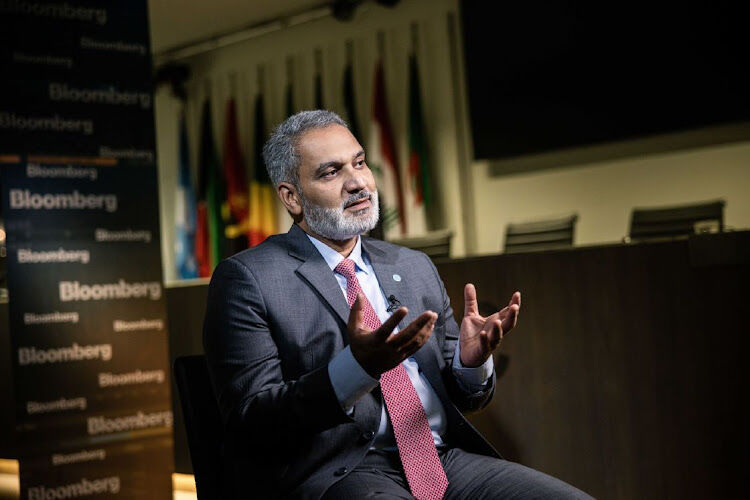The Paris-based IEA said last week that the move "augurs badly for the economic recovery and growth," but OPEC's top official begs to differ.
"We believe that our efforts in stabilizing the global oil market are beneficial to the world economy in the medium to longer term," OPEC Secretary General Haitham Al Ghais told Energy Intelligence in an interview on Monday.
Al Ghais also pointed out that the recent surprise reduction in targeted production was a voluntary move by several key OPEC+ producers, rather than an official decision in which all members of the alliance would participate.
"I would like to clarify that there was no OPEC+ decision taken in April," he said.
All members of the OPEC+ alliance had already formally adopted a cut in their combined targeted oil production of 2 million barrels per day, which remains in place and is set to run until the end of this year.
The additional cuts of more than 1.6 million bpd announced on Apr. 2 will also run until the end of this year. They include an extension of a previously announced unilateral cut of 500,000 bpd by Russia.
Other countries contributing to the new round of cuts include OPEC heavyweights Saudi Arabia, Iraq, the United Arab Emirates and Kuwait.
At the time, a Saudi official described the move as a "precautionary measure" aimed at "supporting the stability of the oil market."
It coincided with a period of about three weeks in March when Brent crude futures dipped below $80 per barrel.
Economic impact
"It is the sovereign right of the countries to voluntarily adjust their production in what is clearly a precautionary measure," Al Ghais said.
"Misrepresenting such actions and continuously leveling baseless criticism are counterproductive and can only lead to more volatility and market instability."
In recent months, OPEC+, an alliance of oil producers, and the IEA, which mostly represents net importers of oil, have disagreed about the outlook for the global oil market and the impact of oil prices on the global economy.
The IEA has argued that tighter oil supplies will push the world closer to recession and stoke inflation by driving up fuel prices.
OPEC+ producers have focused instead on issues such as interest rate hikes by Western central banks, recent turmoil in the banking sector and a lack of upstream investment in the oil industry.
Differing views
The IEA warned last week that the additional OPEC+ cuts could lead to an even deeper supply deficit in the second half of this year, which would pose a threat to global economic growth.
"Oil market balances were already set to tilt into a substantial deficit," the Paris-based agency said in its latest monthly Oil Market Report on Friday.
"The latest cuts risk exacerbating those strains" and "consumers currently under siege from inflation will suffer even more from higher prices," it added.
Assuming solid compliance, Energy Intelligence sees the latest OPEC+ cuts flipping 2023 balances from a previously expected 300,000 bpd surplus to a 600,000 bpd deficit — but the market would be close to equilibrium if Russia keeps most of its oil flowing.
Meanwhile, Energy Intelligence data also shows global oil inventories rising to 9.24 billion barrels in March, their highest level in two years, suggesting for the time being at least, that the market is not short of oil.
'Stabilizing role'
Al Ghais poured cold water on the notion that OPEC+ has been stoking inflation by holding back supply.
"Other energy markets have been far more volatile than oil markets, mainly due to the stabilizing role of the OPEC+ group. Therefore, blaming oil for inflation is an argument that does not hold," he said.
"This can be seen clearly when looking at the core personal consumption expenditures index, which excludes prices of food and energy," he added.
Al Ghais reiterated earlier warnings that low levels of upstream investment pose the main threat to oil price stability, and that producers and consumers need to stop pointing fingers at each other.
“We need to work with each other, not against each other," he said. "At OPEC, we believe that the key to overcoming future energy challenges is through engaging in constructive dialogue with all stakeholders."


Your Comment